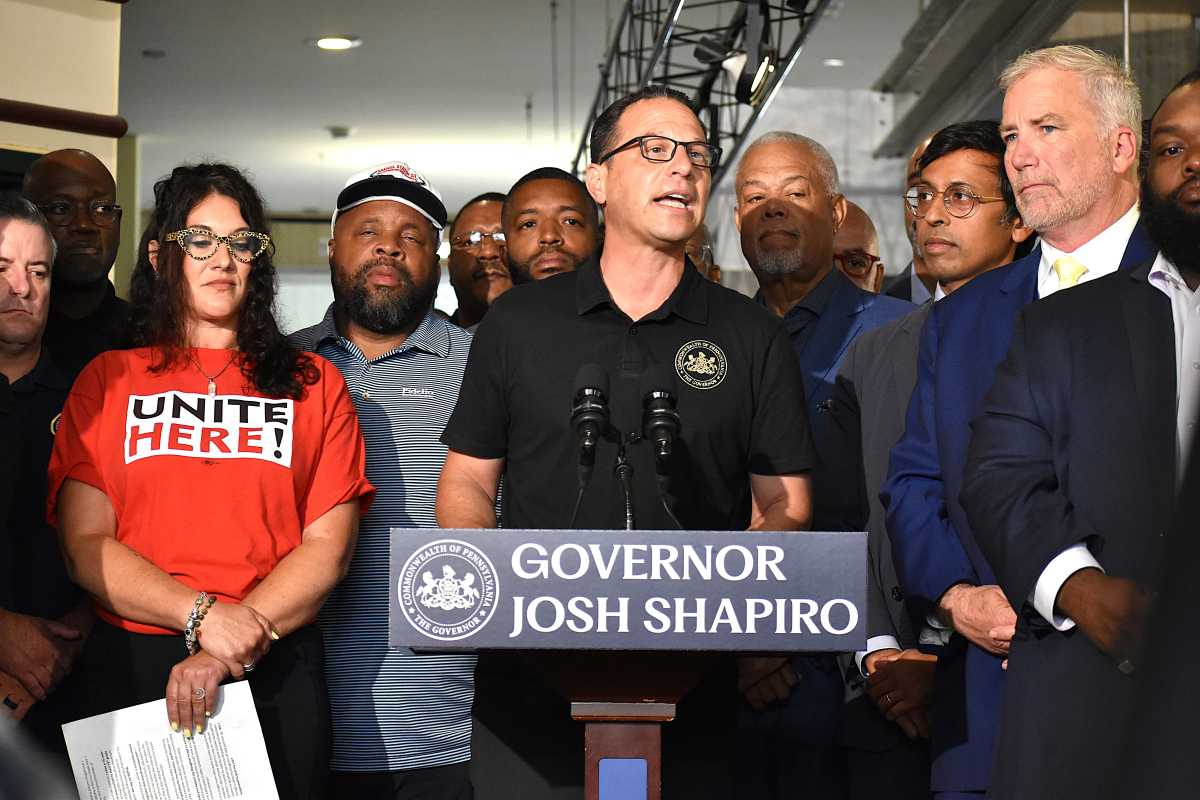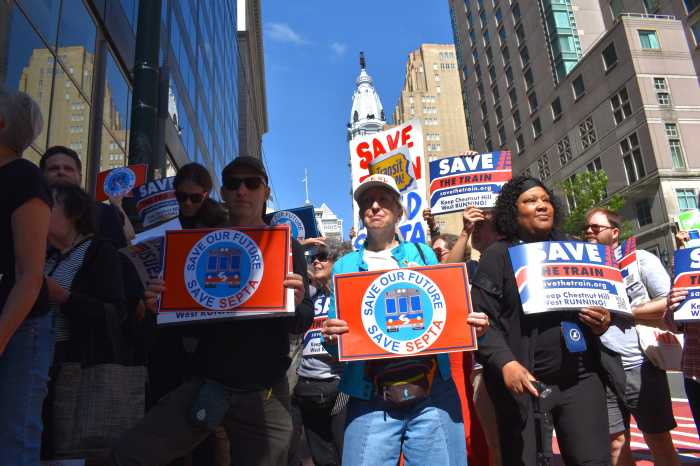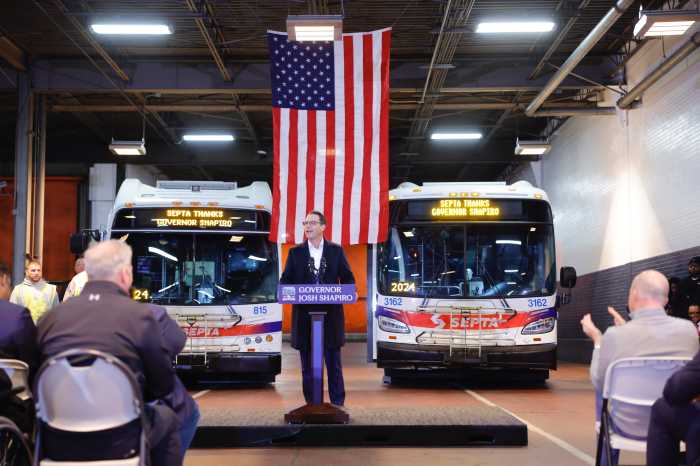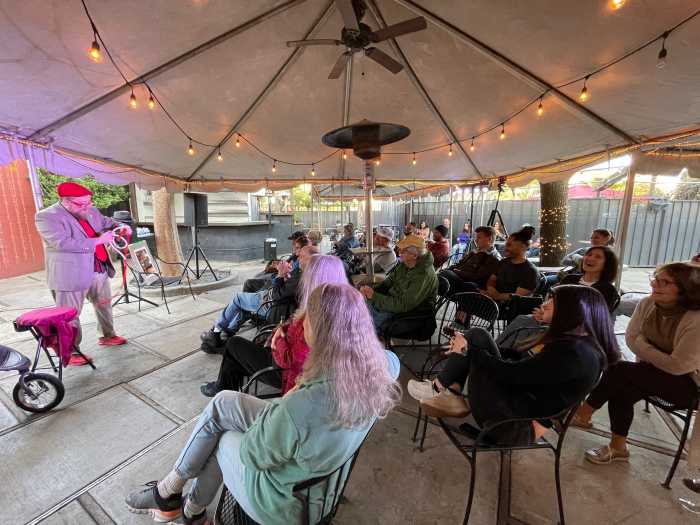Gov. Josh Shapiro met Sunday with SEPTA officials and again called on leaders in the Republican-controlled state Senate to approve new funding for public transit, just days before a deadline to avoid service reductions in the Philadelphia region.
SEPTA said last week that funding would need to be in place by Thursday to prevent an initial round of cuts, including the elimination of 32 bus routes, beginning Aug. 24.
Late last year, Shapiro ‘flexed’ federal highway funds to stall SEPTA’s death spiral. The governor and lawmakers, in a prior budget cycle, agreed to a one-time influx of dollars to keep transit systems afloat.
“We are past the point of short-term stopgap measures,” Shapiro said Sunday. “It is time to have recurring long-term revenue for SEPTA and for the other mass transit agencies across Pennsylvania, and the time to act is now.”
Shapiro and his family hail from Montgomery County, and he said his teenage son Reuben recently asked why a deal had not been reached yet to secure SEPTA’s finances.
“A big piece of what’s holding it up is there are some folks who don’t believe in funding our buses and our trolleys and our trains and our subways,” he added. “My 14-year-old looked up and just said, ‘How are people supposed to get to work, Dad?’ He got it. He understood it.
“People instinctively understand that, here in Philadelphia and I would argue, all across Pennsylvania, mass transit is critical.”
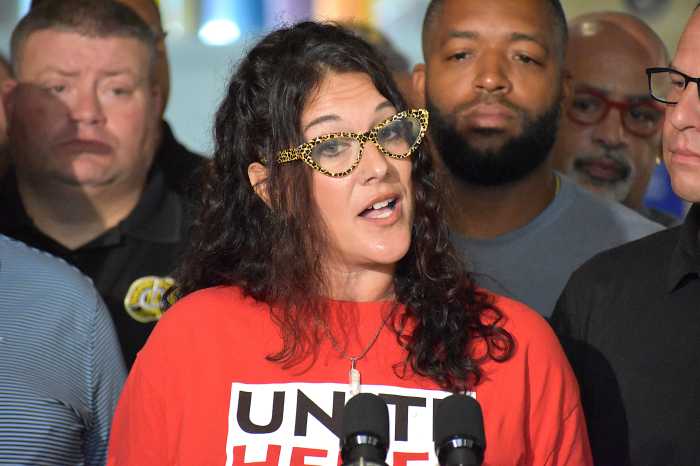
Autumn Fingerhood, a Fox Chase resident, is wondering how her 15-year-old daughter is going to get to school. Her bus route is among those slated to be axed, just a day before public school students return to class.
“Who is going to drop my daughter off and pick her up? Am I supposed to quit my job?” said Fingerhood, who works for Aramark at the South Philadelphia sports complex and is a member of UNITE HERE Local 274.
“These are the dilemmas that not just my daughter, but hundreds of thousands of families are facing because they don’t seem to care about the working people and our children,” she added. Fingerhood spoke alongside Shapiro at Sunday’s news conference.
In addition to the eliminated routes, SEPTA intends to shorten 16 bus lines; end all special event service, such as the Broad Street Line’s Sports Express; and reduce frequency across-the-board later this month.
Absent new funding, the authority plans to institute a fare increase Sept. 1, with the base rate for bus, trolley and subway riders rising to $2.90, up from $2.50.
More cuts are set for January, including the termination of five Regional Rail lines, the Broad-Ridge Spur and 18 more bus routes. Trains, including subway lines, would stop running at 9 p.m.
“The impact will not be limited just to SEPTA’s customers,” Scott Sauer, the authority’s general manager, said Sunday. “For tens of thousands of riders, SEPTA will no longer be a viable option, and many who can afford to drive will do so, adding to the congestion that’s on our roadways already. Everyone will feel this.”
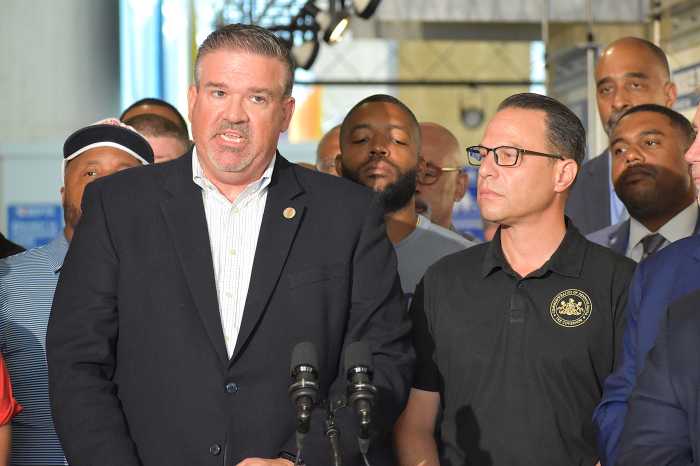
In all, SEPTA’s doomsday budget cuts nearly half of all of its transit service to close a $215 million annual budget deficit that officials say was spurred by the end of federal COVID-19 relief dollars and rising costs.
Senate GOP leadership has no more excuses, said South Philadelphia state Rep. Jordan Harris, chair of the powerful Appropriations Committee. He told reporters Sunday that the House plans to pass another transit funding package Monday.
It would be the fifth time the lower chamber, where Democrats hold a slim majority, has approved legislation boosting transit funding. The efforts have not gained the necessary traction in the Senate.
The latest attempt incorporates transparency and accountability measures championed by GOP state Sen. Joe Picozzi, of Northeast Philadelphia, alongside funding for public transportation and rural highways and bridges.
“That bill actually took all that we’ve heard publicly from Senate Republicans on what they wanted to see as far as transparency, accountability,” Harris added. “We took all of that – their language – and put it into one piece of legislation that also included mass transit funding.”
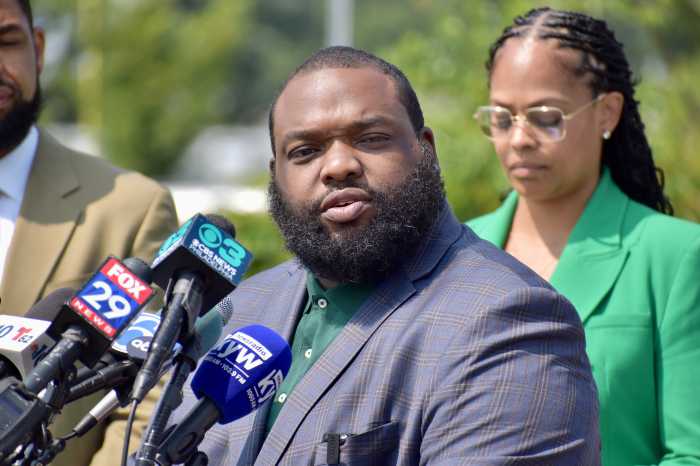
A spokesperson for the Republican Senate majority did not immediately respond to a request for comment Sunday.
Senate President Pro Tempore Kim Ward, of Westmoreland County, on Saturday recalled her colleagues for a voting session Tuesday. Local Democrats had been demanding senators return to Harrisburg, though it is not clear whether a vote will be held on transit funding.
“It is important that we ensure the needs of Pennsylvanians are addressed by helping schools, hospitals, nursing homes and other services,” Ward said on social media.
Shapiro declined to comment on the specifics of the negotiations. Pennsylvania’s budget was due June 30, and the sides remain in daily contact, he added.
“I’m working my heart out,” Shapiro said, surrounded by labor leaders and more than a dozen Philadelphia-based state lawmakers inside SEPTA’s Center City headquarters. “I’m working my tail off to try and get this done with everything I got, with everything my team’s got.”



